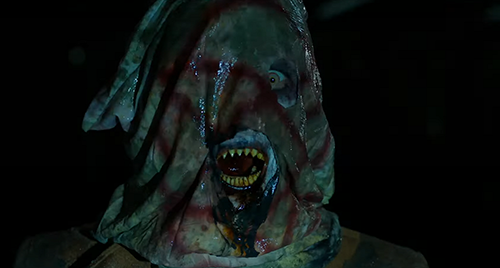
 First-time actor Thomas Parigi plays the title role in The Strange Case of Jacky Calliou, a young man orphaned by a car wreck. He lives with his grandmother (fellow neophyte Edwige Blondiau) in the French Alps, where she makes a most meager living as a “magnetic healer.” From achy body parts to depressed farm animals, she’s got the touch; she’s got the power.
First-time actor Thomas Parigi plays the title role in The Strange Case of Jacky Calliou, a young man orphaned by a car wreck. He lives with his grandmother (fellow neophyte Edwige Blondiau) in the French Alps, where she makes a most meager living as a “magnetic healer.” From achy body parts to depressed farm animals, she’s got the touch; she’s got the power.
After he expresses interest in learning her trade, the old woman passes away. But after reviving a bird, Jacky accepts his hands indeed are imbued with the gift. Thus, he takes on his gammy-gam’s last client: a beautiful young woman (Lou Lampros, The French Dispatch) whose right shoulder bears an inexplicable patch of what looks like a Petri dish’s worth of mold spores.
Is Jacky a healer or enabler? Great question, acknowledges feature-debuting director Lucas Delangle, whose script with Olivier Strauss takes deft, measured steps to approach the edge of answering without quite stepping foot on or over it. That’s by design, and as is common in folk horror, this ambiguity is one of its strengths. Not only are we left to gauge the reality of the Caillou power, but how deeply Jacky and his grandmother believe in it. (Lest we ruin it, let’s not even touch the issue of village sheep brutally murdered in the dead of night.)
Chilly in look and feel, Jacky Calliou (as it’s blandly titled on home turf) employs the slow-burn technique that earns every reward, which it turns over to the audience. Majestic setting aside, nothing about the film is showy; Delangle asks for patience and gets it without the viewer even noticing the point at which he or she yields. Although this Strange Case is hardly for everyone, anyone curious how Blood on Satan’s Claw might play like in contemporary times, here comes the evidence, ready to make the hair on your back stand up. —Rod Lott




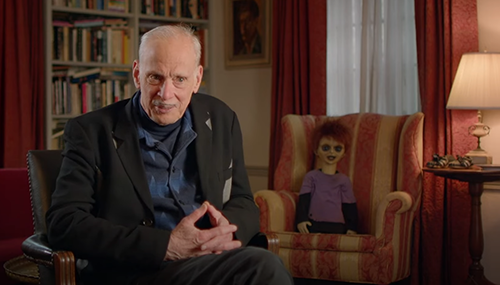

 With the
With the 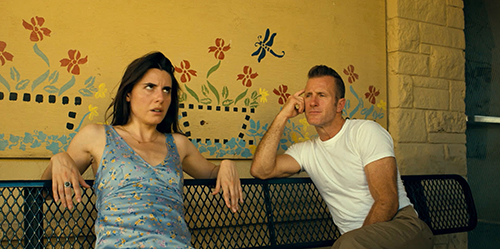
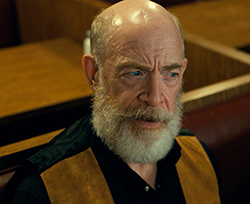 With a mix of actors known and not, the cast is solid. Brief bits by Virginia Madsen and Taryn Manning as, respectively, Lola’s mom and Jackie’s ex-wife, enliven an already fun film. It almost goes without saying Simmons is never not terrific. Shot in Swab’s Sooner State hometown of Tulsa and surrounding small towns, A Lion for a Day aptly uses its setting to serve the story, and the orange-and-yellow saturation of scenes help viewers feel Oklahoma’s oppressive summer heat.
With a mix of actors known and not, the cast is solid. Brief bits by Virginia Madsen and Taryn Manning as, respectively, Lola’s mom and Jackie’s ex-wife, enliven an already fun film. It almost goes without saying Simmons is never not terrific. Shot in Swab’s Sooner State hometown of Tulsa and surrounding small towns, A Lion for a Day aptly uses its setting to serve the story, and the orange-and-yellow saturation of scenes help viewers feel Oklahoma’s oppressive summer heat. 
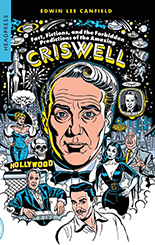
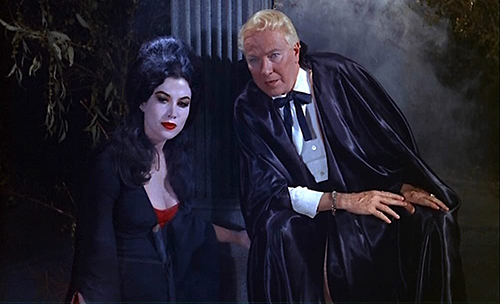
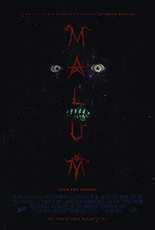 I’ve not seen Anthony DiBlasi’s 2014 film,
I’ve not seen Anthony DiBlasi’s 2014 film, 